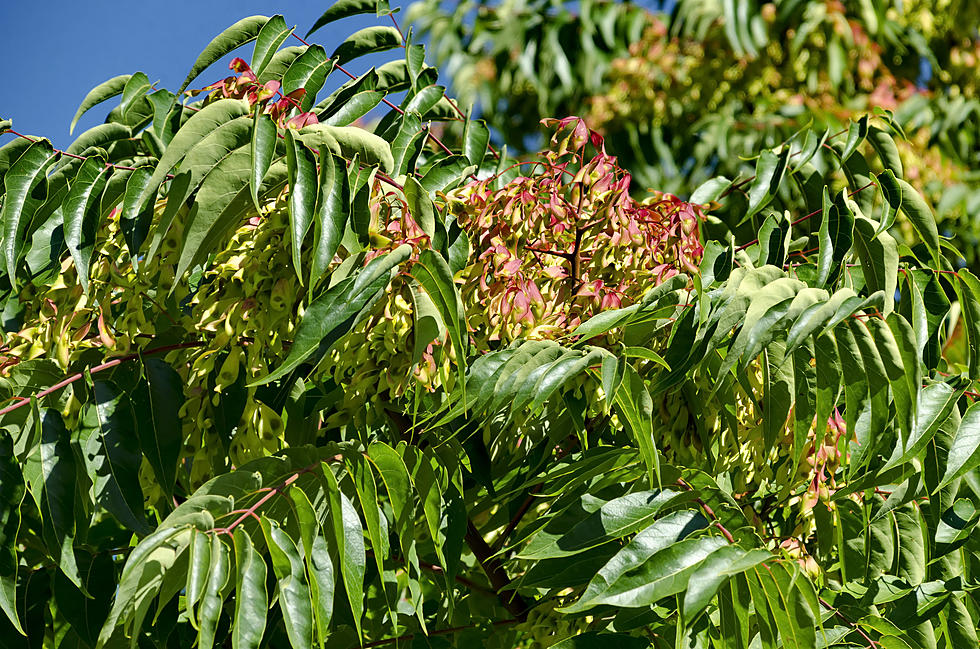
Remove This Notorious and Invasive Plant From Your Yard Now
An invasive plant that attracts a damaging insect could be growing in your yard, but cutting it down won't make it go away. Here's how to safely remove the notorious tree of heaven and why it needs to be taken out of your yard soon.
In a case of one thing leads to another, this invasive and stinky plant can draw damaging lanternflies to your yard who will in turn destroy your other plants and leave behind black, sooty mold. None of that is good news for you and it all starts with the tree of heaven.
What Is the Tree of Heaven?
Sure, it sounds like a lovely plant, but this invasive tree from China will actually wipe out the native plants around it with its dense growth and toxins, which it excretes into the soil. Not to mention, it has terrible-smelling flowers that actually attract invasive and destructive insects. It's not a good plant to have around at all and yet it is one of the most common trees in most U.S. cities.
How to Get Rid of the Tree of Heaven
Do not try to simply cut down this plant. The more you cut a full-grown tree of heaven, the more you are encouraging it to grow. If you can catch the plant in its seedling stage, the best bet is to pull it, roots and all, straight out of the ground.

More likely your tree of heaven is full grown and a little trickier to tackle. First, you must treat the plant with an herbicide. The best ones for this plant are glyphosate and triclopyr that absorb through the leaves and spread to the roots. Then watch for signs the herbicide is doing it's thing (which could take up to a month) before getting in there and cutting it down.
Why You Want to Get Rid of Tree of Heaven
The tree of heaven itself is not harmful to humans or pets. It is, however, very harmful to other plants around it. Plus, the flower smell attracts the even more damaging spotted lanternfly. Also invasive from China, these lanternflies have been popping up across Pennsylvania, New Jersey, Delaware and more nearby states attacking crops and creating mold. The infestations have been getting worse year after year and in 2020 they were discovered in Massachusetts. With spotted lanternfly mating season recently coming to an end, more are emerging and were most recently discovered in Connecticut. Having these lanternflies in your yard could mean serious damage to your plants and trees plus a black, sooty mold excreted on decks, swingsets and more.
Luckily, the spotted lanternflies have not arrived on the SouthCoast just yet. Though a spotted lanternfly public report recorded a sighting in Bristol County, an actual infestation is not currently happening in our area – but it could be coming. Considering it takes about a month for the tree of heaven to be properly removed from one's yard, now might be the time to get this invasive plant gone and ensure the spotted lanternflies aren't attracted to your property.
The SouthCoast's Best Backyards
Bask in Your Own Tropical Paradise in the Middle of Massachusetts
More From WFHN-FM/FUN 107









